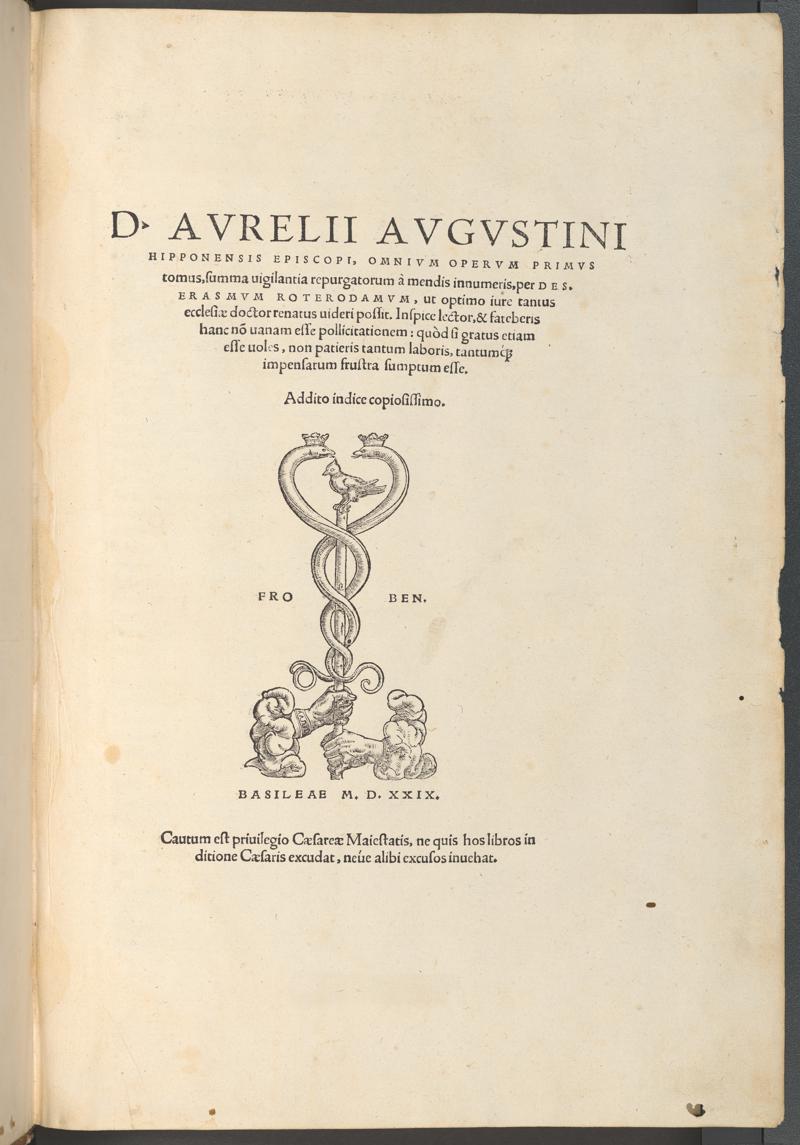Aurelius Augustinus. Opera Omnia [Eras. of Rot. Ed.]. 1529.
The Zentralbibliothek Zürich through the E-rara digital library, is offering the Opera Omnia of St. Augustin, in the edition reviewed by Erasm of Rotterdarm.
This edition count 10 volumes, with a total of +8,000 pages. All of them are available to read on-line, or as downloads in .pdf format.
The archives to read online are provided as full-color images.
To get access into the .pdf files, only open the ‘Table of contents‘, at the bottom of the informational page, and you will get a list with the whole pdfs, belonging to complete volumes, or only partial downloads, this mean, spare works.
The importance of this kind of releases rest not only in the bibliographical or philological aspect, but in the possibility of realize another approximations to the Patristic works reviewed in the Renaissance period:
ONE OF THE MORE neglected areas of current Renaissance studies is the investigation of the literary scholarship of the humanists. When we think of Lorenzo Valla, we think of his dialogue On the True and False Good, the Declamation on the Donation of Constantine, and the dialogue On Free Will, but rarely of his translations of the Greek historians, his investigations into the text of Livy, or his comparison of the Vulgate with the Greek text of the New Testament. The name of Erasmus brings to mind the Enchiridion, the Colloquies, and the Praise of Folly much more readily than the translations of Euripides, the editions of the Church Fathers, or the Annotations to the New Testament. This state of affairs is particularly surprising in view of the fact that the Renaissance humanists owed their reputations in large measure to their work in the field of classical and biblical scholarship. Furthermore, when historians do turn their attention to Renaissance scholarship, they tend to speak of it in general terms, as though there were little important qualitative difference between one Renaissance scholar and another. The humanists in general are said to have introduced critical methods into scholarship, to have become concerned with producing accurate texts of the classics and the scriptures, and to have insisted on understanding works of literature and scripture in their proper historical context.
“Biblical Philology and Christian Humanism: Lorenzo Valla and Erasmus as Scholars of the Gospels” by Jerry H. Bentley.
University of Hawaii at Manoa. Sixteenth Century Journal, VIII, Supplement (1977).

1 thought on “Aurelius Augustinus. Opera Omnia [Eras. of Rot. Ed.]. 1529.”